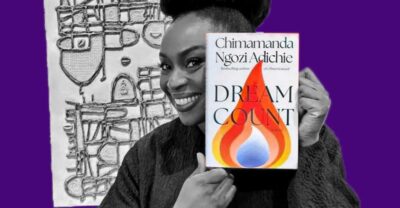As an author, I’m sure you’ve been down this lane — pouring your heart and soul into a manuscript, only to worry about someone swooping in and stealing your work. Well, that’s where copyright law comes in — the unsung hero of the literary world.
But let’s be real, copyright law can be about as thrilling as folding laundry. So, grab a cup of coffee, get comfy, and let’s dive into the world of copyright law in Nigeria.
What is Copyright Law?
Copyright law protects original literary, dramatic, musical, and artistic works against unwarranted usage, application or distribution. Think of it like a force field around your creative work, keeping others from using it without your permission. In Nigeria, copyright law is governed by the Copyright Act of 1988 (as amended in 1999).
Now, while copyright laws share some similarities worldwide, it is interesting to know that Nigeria has some unique twists to its Copyright Laws. Here are a few:
– Copyright Duration: In Nigeria, copyright lasts for 70 years after the author’s death. After that, the work enters the public domain for free access.
– Moral Rights: Nigerian copyright law recognizes moral rights, which protect the author’s reputation and integrity. This means you can’t distort, mutilate, or modify someone’s work without their consent.
– Collective Management Organizations: Nigeria has collective management organizations (CMOs), like the Copyright Society of Nigeria (COSON) and the Reproduction Rights Society of Nigeria (REPRONIG). These organizations help manage copyright on behalf of authors and creators.
– ISBN Registration: The National Library of Nigeria is responsible for issuing ISBNs, which are essential for published works — particularly books and related publications.
A few ways these laws impact authors in Nigeria are:
– Curbing Plagiarism: With the rise of online content, plagiarism has become a major concern. Nigerian copyright law takes plagiarism seriously, and offenders can face fines or even imprisonment.
– Mitigating Piracy: Piracy is a significant problem in Nigeria, with many books, music, and films being reproduced and distributed without permission. Authors often lose significant income due to piracy.
– Effective Licensing and Permissions: Nigerian authors need to obtain permission or licenses to use copyrighted materials, such as quotes, images, or music, in their work.
To show the gold-standard value of these rights, here are some notable events that have demonstrated Nigeria’s efforts to establish and enforce copyright laws, thereby protecting authors and promoting intellectual property rights:
1. The “Pirated Books” Raid (2011): The Nigerian Copyright Commission (NCC) raided markets in Lagos and seized thousands of pirated books worth millions of naira. This operation highlighted the NCC’s efforts to combat piracy and protect authors’ rights.
2. The “African China” Copyright Case (2006): Renowned Nigerian artiste, “African China,” (Chinagorom Onuoha) sued a record label for copyright infringement over his hit song “Mr. President”. The court ruled in his favour, setting a precedent for copyright protection in Nigeria’s music industry.
On the global scene, one outstanding event was the Google Books Copyright Infringement in 2005. Google was sued for copyright infringement over its Google Books project, which aimed to digitize millions of books. The case raised questions about fair use and the limits of copyright law in the digital age.
Let’s talk a bit about ISBNs…
One giant leap you can take as an author to make your book uniquely identified is getting the International Standard Book Number (ISBN). This is a national and international standard identification number for uniquely identifying books. It’s used to identify a book’s edition, publisher, and physical properties, giving it due peculiarity globally.
However, ISBN is an identifier and does not convey any form of legal or copyright protection. Nonetheless, in Nigeria ISBN is used to identify publications and has been made a legal requirement. The National Library of Nigeria (NLN) is responsible for assigning ISBNs to publications in Nigeria.
Looking at all the do’s and don’t and restrictions, one might also question if the educational materials used to convey knowledge are themselves compliant with these laws. Let’s say that is a subject for another day. For now, to stay on the right side of copyright law, here are some things to avoid:
- Plagiarism: Always properly cite sources and credit original authors.
- Avoid using copyrighted materials, either images, music, or quotes, without obtaining the necessary licenses or permissions for such usage.
- Avoid sharing or distributing copyrighted materials, such as e-books or music, without permission.
While abiding by the rules in a battlefield, it’s also important to fully arm yourself with the armour required for defense against attack. Lol. Okay, I know we are not on the battlefield of copyrighting, but one can never be too careful, right?
Anyways, to protect your work and respect the work of others, here are some important steps to take:
- Register your work with the Nigerian Copyright Commission (NCC) to establish proof of ownership.
- Obtain an International Standard Book Number (ISBN) from the National Library of Nigeria.
- Include copyright notices in your work to alert others to your rights.
- Always obtain the necessary permissions and licenses to use copyrighted materials.
Copyright law might seem daunting, but understanding it can save you a world of trouble. As an author, writer or publisher, it is essential to know your rights and respect the rights of others. By following these guidelines and staying informed, you can protect your work and contribute to a thriving literary community!
So, go ahead and write that bestseller — the copyright law has got your back! CLASIER too!
See how we can help you to publish a great, bestselling book here.





